In my previous post I found that the DC common mode rejection adds less than a percent or so of error to the output. Next, I’ll see how the overall gain accuracy looks. I’m using a 20kHz input signal, and testing the output at 50x and 25x gain configs.
Measurements were collected at the input and output of the CSA. I had some averaging setup to help cleanup both waveforms. At lower input voltages the accuracy starts degrading, but above 25mVpp, the CSA gain is consistently within ±1% of expected. See data below.
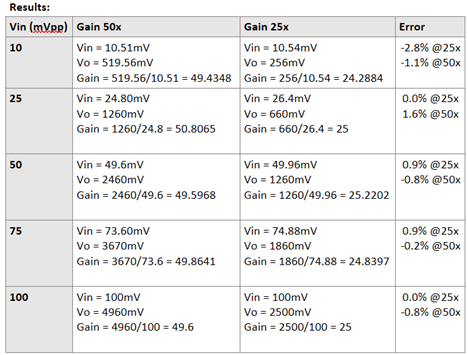
And because I have them, I might as well share some of the captures too.
| Vin (mVpp) | Gain 50x | Gain 25x |
| 10 Expected ~ | 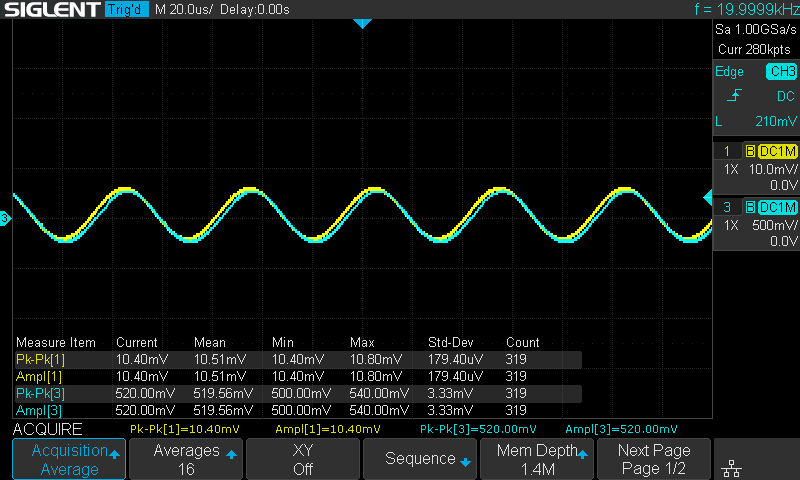 Vin = 10.51mV Vo = 519.56mV Gain = 519.56/10.51 = 49.4348 | 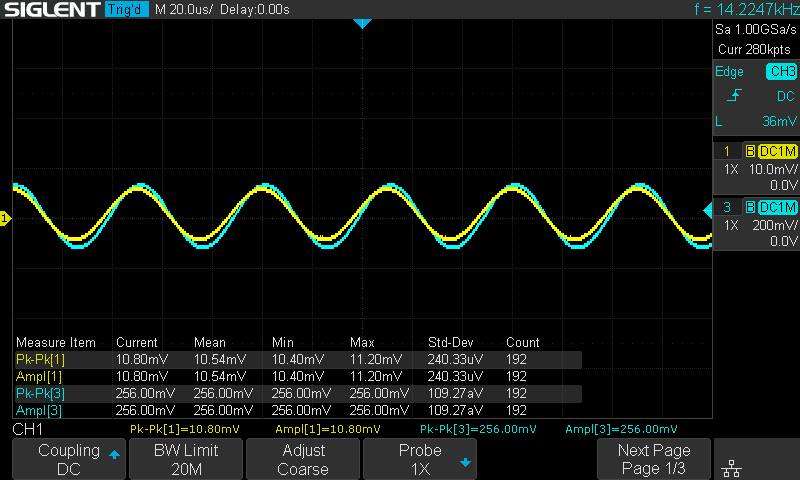 Vin = 10.54mV Vo = 256mV Gain = 256/10.54 = 24.2884 |
| 25 Expected ~ | 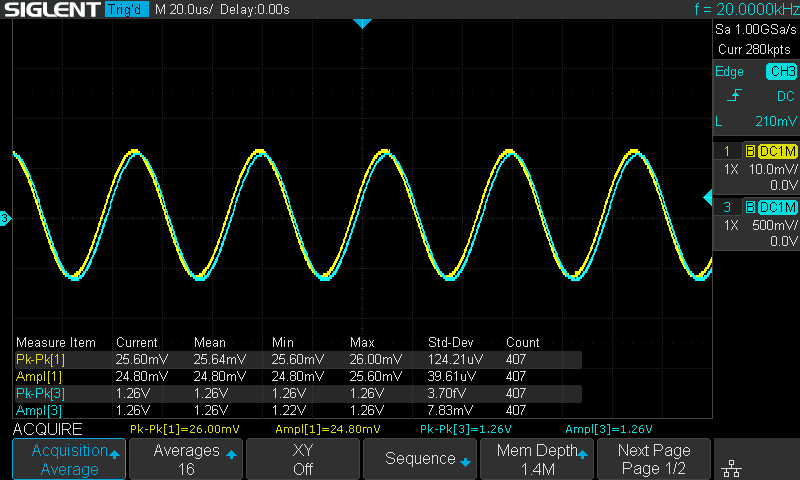 Vin = 24.80mV Vo = 1260mV Gain = 1260/24.8 = 50.8065 | 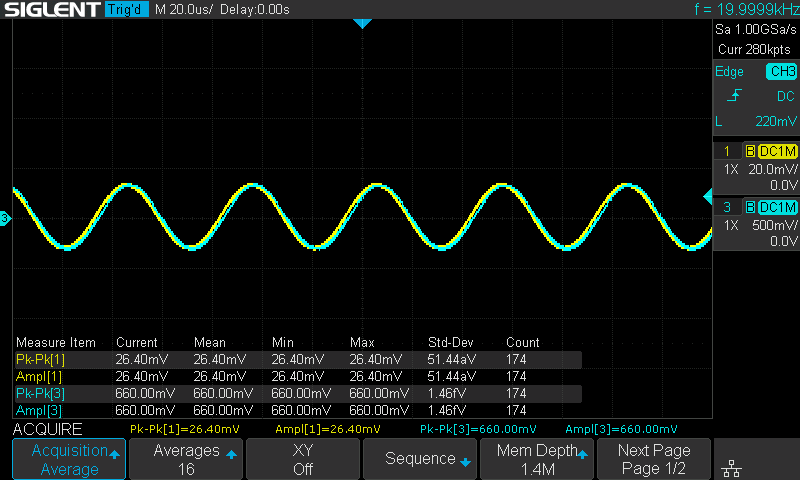 Vin = 26.4mV Vo = 660mV Gain = 660/26.4 = 25 |
| 50 Expected ~ |  Vin = 49.6mV Vo = 2460mV Gain = 2460/49.6 = 49.5968 | 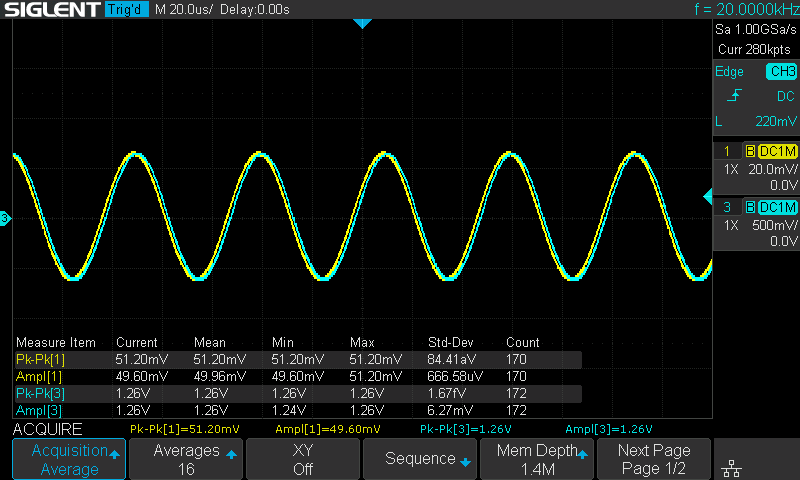 Vin = 49.96mV Vo = 1260mV Gain = 1260/49.96 = 25.2202 |
| 75 Expected ~ | 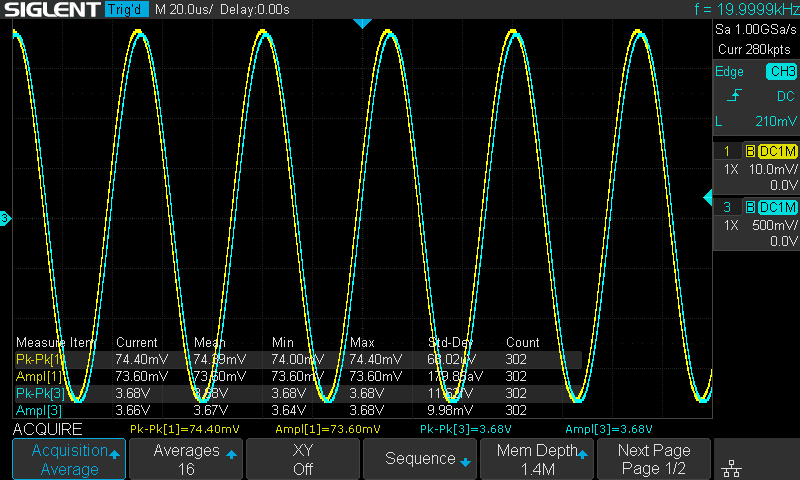 Vin = 73.60mV Vo = 3670mV Gain = 3670/73.6 = 49.8641 | 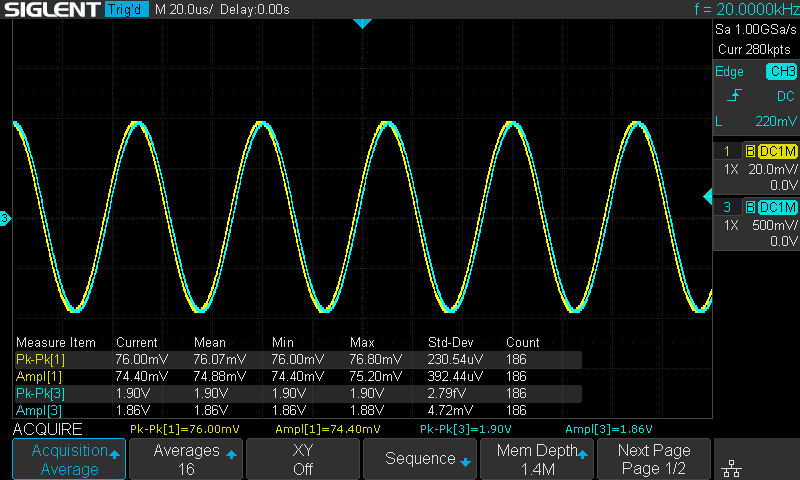 Vin = 74.88mV Vo = 1860mV Gain = 1860/74.88 = 24.8397 |
| 100 | 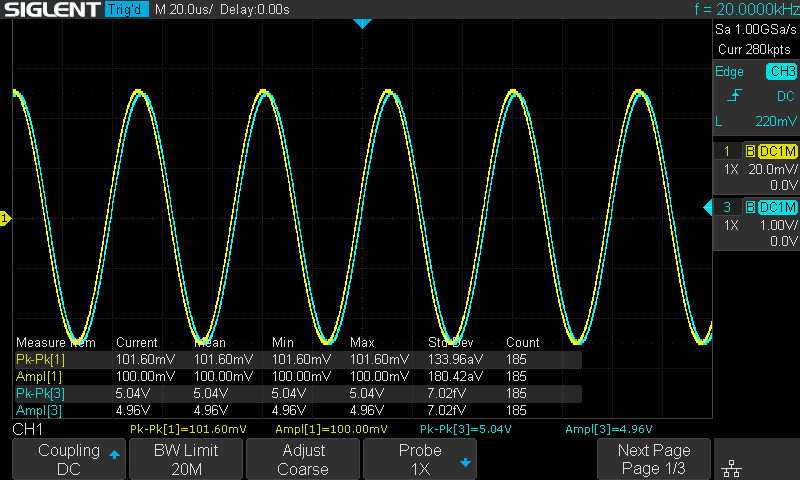 Vin = 100mV Vo = 4960mV Gain = 4960/100 = 49.6 | 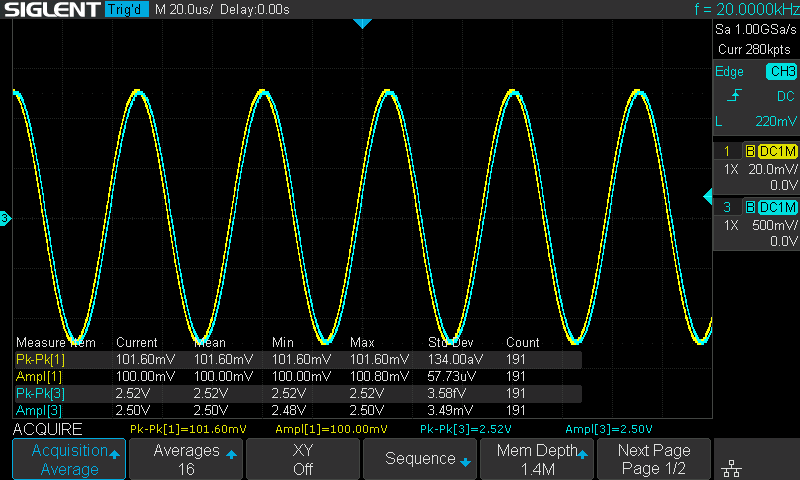 Vin = 100mV Vo = 2500mV Gain = 2500/100 = 25 |
 Jesse Farrell
Jesse Farrell
Discussions
Become a Hackaday.io Member
Create an account to leave a comment. Already have an account? Log In.